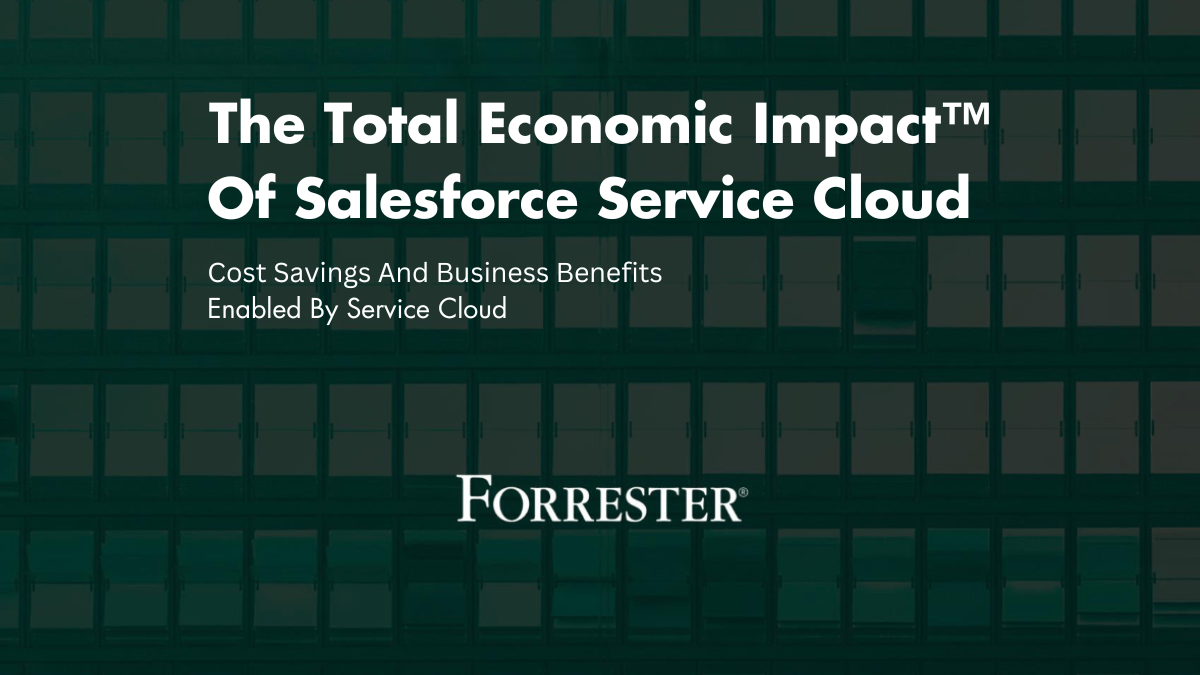
Salesforce Service Cloud unifies the contact center around a single view of the customer and empowers service agents to meet customer expectations, create positive interactions, and deliver seamless digital service. Service Cloud customers deflected cases to self-service, automated manual processes, streamlined legacy technology stacks and workflows, and had more loyal customers.
Salesforce Service Cloud commissioned Forrester Consulting to conduct a Total Economic Impact™ (TEI) study and examine the potential return on investment (ROI) enterprises may realize by deploying Service Cloud. The purpose of this study is to provide readers with a framework to evaluate the potential financial impact of Service Cloud on their organizations.
To better understand the benefits, costs, and risks associated with this investment, Forrester interviewed five customers with experience using Service Cloud. For the purposes of this study, Forrester aggregated
the experiences of the interviewed customers and combined the results into a single composite organization.
Prior to using Service Cloud, respondents from the interviewed organizations had traditional contact centers that offered email and telephony support. Agents juggled several systems and struggled with information and departmental silos. Customers faced long hold times, struggled to find answers online, and demanded a more seamless experience.
After the investment in Service Cloud the customers were able to add new service channels unify customer information in a single place and automate manual tasks. With Service Cloud and the Salesforce ecosystem, agents were empowered to create better experiences for their customers.
Please fill out the form to access the content
Resource Sponsored By









